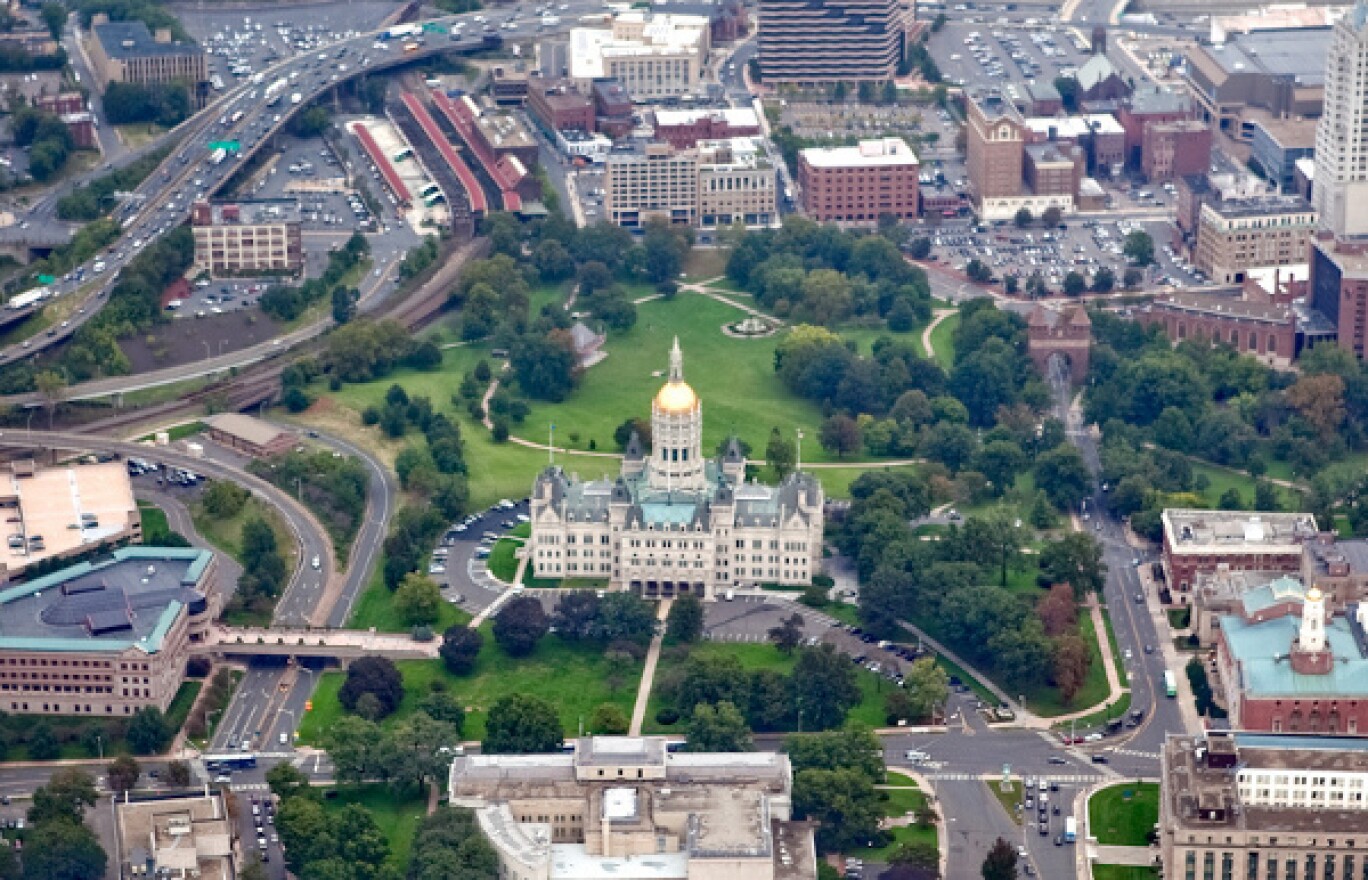While state officials continued to creep closer to a budget deal, another key piece appeared to fall into place Wednesday: a state income tax cut for middle class families — but not until 2024.
The package also includes relief for Connecticut’s struggling restaurants, but much less than was originally proposed. Meanwhile, tax increases on wealthy households and a new digital media levy are out.
Both House Speaker Matt Ritter, D-Hartford, and Rep. Sean Scanlon, the House chair of the tax-writing Finance Committee, said their chamber is committed to running a package that creates a new child tax credit within the state income tax system by 2024.
“Yes, there’s a marker put down in Year 3,” Ritter said during a mid-morning news conference.
That means a $300-per-child credit, up to a maximum of $900, for low- and middle-income households starting in 2024. The full credit would reach $600 per child, topping out at $1,800 per household, starting in 2025.
Ritter also reaffirmed the package will include immediate relief for Connecticut’s poorest working families.
The state Earned Income Tax Credit, which currently is equal to 23% of the federal EITC and provides about $118 million annually in state income tax refunds to just under 200,000 households, would likely climb to 30%, according to the speaker.
“These are the people who went to work during this pandemic,” Scanlon told the CT Mirror during a phone interview. “Those are the kinds of people who deserve tax breaks now.”
But that relief came at a price.
Full details weren’t available Wednesday afternoon, but Scanlon, a Guilford Democrat, said he expects it will be similar to the tax break his committee recommended in April.
Both Ritter and other sources familiar with the budget negotiations confirmed that tax increases that drew opposition from Gov. Ned Lamont and other moderate Democrats are now off the table. Lamont’s budget office had no comment on the discussions.
These include income tax surcharges on the wealthy and a new digital media ads levy on online giants like Google and Facebook.
Progressives argued those tax hikes would be needed to maintain key priorities — tax breaks for the poor and middle class, expanded municipal aid and new state investments in cities — once billions of dollars in federal coronavirus relief to state and municipal governments expires in 2024.
But holding off on the tax hikes, the speaker said, leaves Lamont and the Democrat-controlled General Assembly much closer to common ground on a new two-year budget.
“I feel better today,” said Ritter, who expressed fears Tuesday that the budget negotiations were bogging down with just over one week left in the regular 2021 legislative session. “I think the sense of urgency is there.”
Ritter added that while he’s “very optimistic” about holding a budget debate as early as Saturday, “there’s still some items we need to work through.”
Scanlon said he was willing to defer state income tax relief for the middle class because those same families will be getting a break on their federal taxes.
Congress recently expanded the federal child tax credit through the American Rescue Plan Act, giving families between $3,000 and $3,600 per child, this year. Normally the limit is $2,000 per child.
Connecticut’s congressional delegation has pledged to fight to make that upgrade permanent. But should that prove unsuccessful, Scanlon added, he will propose next year that the state income tax relief be moved up from 2024 to 2023.
Another casualty of the tax compromise, according to a source, involves a finance committee proposal for a one-time $50 million tax cut for Connecticut’s struggling restaurant industry.
The panel had proposed allowing restaurants to keep all receipts — for one year — from the 1-percentage-point surcharge Connecticut tacks onto its 6.35% sales tax rate for meal purchases.
The compromise scaled that relief back considerably, allowing restaurants to keep receipts equal to the full 7.35% they collect — but only for one week. This would be worth an estimated $7 million.
The Connecticut Restaurant Association did not immediately comment on this development.
Copyright 2021 Connecticut Public Radio






